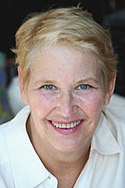Annie Dillard Quote
Hemingway studied, as models, the novels of Knut Hamsun and Ivan Turgenev. Isaac Bashevis Singer, as it happened, also chose Hamsun and Turgenev as models. Ralph Ellison studied Hemingway and Gertrude Stein. Thoreau loved Homer; Eudora Welty loved Chekhov. Faulkner described his debt to Sherwood Anderson and Joyce; E. M. Forster, his debt to Jane Austen and Proust. By contrast, if you ask a twenty-one-year-old poet whose poetry he likes, he might say, unblushing, Nobody’s. In his youth, he has not yet understood that poets like poetry, and novelists like novels; he himself likes only the role, the thought of himself in a hat. Rembrandt and Shakespeare, Tolstoy and Gauguin, possessed, I believe, powerful hearts, not powerful wills. They loved the range of material they used, the work’s possibilities excited them; the field’s complexities fired their imaginations. The caring suggested the tasks; the tasks suggested the schedules. They learned their fields and then loved them. They worked, respectfully, out of their love and knowledge, and they produced complex bodies of work that endure. Then, and only then, the world maybe flapped at them some sort of hat, which, if they were still living, they ignored as well as they could, to keep at their tasks.
Hemingway studied, as models, the novels of Knut Hamsun and Ivan Turgenev. Isaac Bashevis Singer, as it happened, also chose Hamsun and Turgenev as models. Ralph Ellison studied Hemingway and Gertrude Stein. Thoreau loved Homer; Eudora Welty loved Chekhov. Faulkner described his debt to Sherwood Anderson and Joyce; E. M. Forster, his debt to Jane Austen and Proust. By contrast, if you ask a twenty-one-year-old poet whose poetry he likes, he might say, unblushing, Nobody’s. In his youth, he has not yet understood that poets like poetry, and novelists like novels; he himself likes only the role, the thought of himself in a hat. Rembrandt and Shakespeare, Tolstoy and Gauguin, possessed, I believe, powerful hearts, not powerful wills. They loved the range of material they used, the work’s possibilities excited them; the field’s complexities fired their imaginations. The caring suggested the tasks; the tasks suggested the schedules. They learned their fields and then loved them. They worked, respectfully, out of their love and knowledge, and they produced complex bodies of work that endure. Then, and only then, the world maybe flapped at them some sort of hat, which, if they were still living, they ignored as well as they could, to keep at their tasks.
Related Quotes
About Annie Dillard
